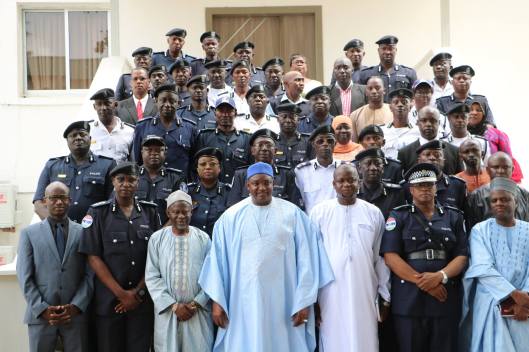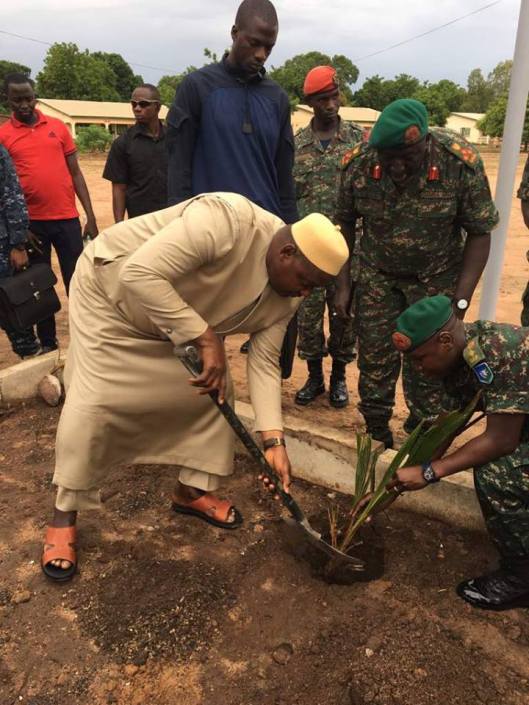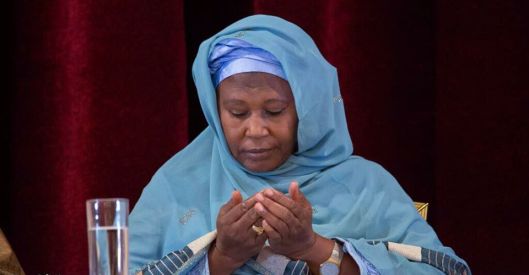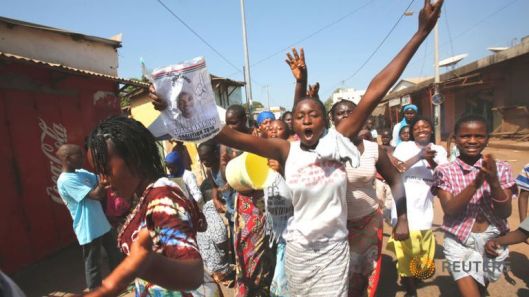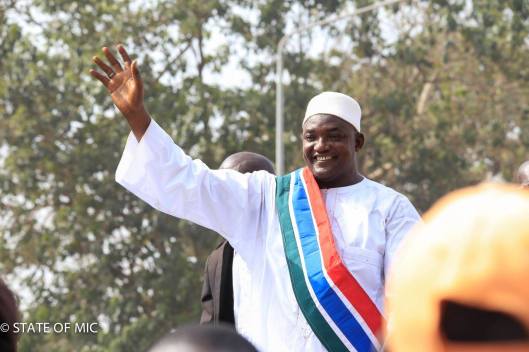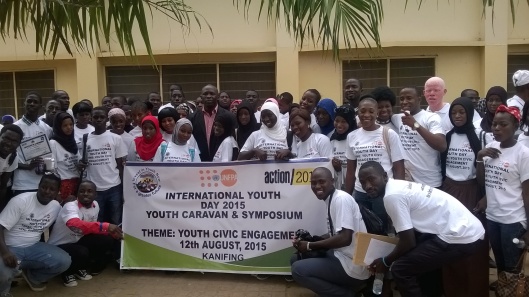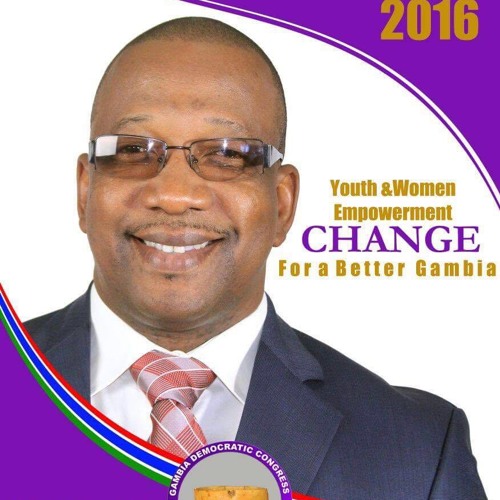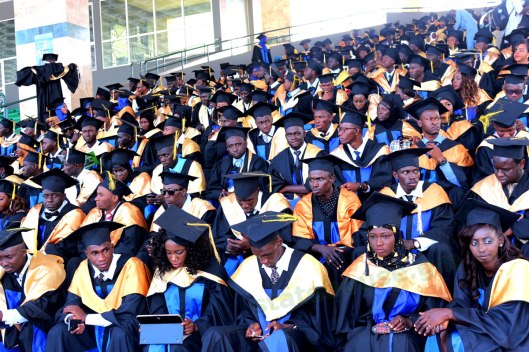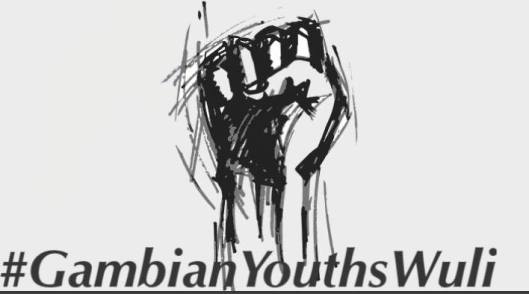Now that the socialist democratic opposition, People’s Democratic Organization for Independence and Socialism (PDOIS) and the ruling Alliance for Patriotic Re-Orientation and Construction (APRC) have both selected their candidates for the upcoming presidential election, the call for opposition unity has been intensified mostly by the Gambian diaspora. While we wait for other parties (UDP, PPP, GMC and NRP) to organize their congress and present their leaders to the electorates, I have a few observations to share on the continuous call for a coalition opposition force. I am convinced even with a united opposition, the chance of uprooting Jammeh is minimal. The issue is not whether they are united or not, the issue is their approach to everything.
This whole idea of opposition unity is not a new phenomenon. I remember coming across some documents during my research on PDOIS that pointed me to similar efforts during the period leading to the 1992 elections. The only difference this time is that the leading advocates of such are Gambians in the diaspora. The call for opposition unity is premised upon the notion that the only possible way of removing Jammeh electorally is a united opposition. Of course, the obsession to remove Jammeh is linked mostly to the numerous human rights violations as well as his poor socio-economic and political policies. Also, there are some disgruntled individuals who hate him for whatever reason. As much as this argument maybe true, I tend to believe otherwise. I strongly believe that even if united, the opposition has little chance of removing Jammeh. My argument is centered on the current nature of our electoral system including the previous electoral results.
Since the colonial period, The Gambia adopted the First Past the Post voting system. This system is based on the number of votes that a candidate received in an election. The one with the most votes is declared the winner. For example, in an election where there are three candidates and a total number of 100 voters, if one candidate received 34 votes, the two remaining candidates with 33 votes each, the one with 34 votes is declared winner. Nonetheless, if the votes of the others are combined, the winner is in the minority. This means that there are more people that did not vote for the winner than the ones that voted for him/her. Over the years, this system has received wide condemnation on the fact that it is not very representative and does not show the true choice of the people. Undoubtedly, such electoral system only favors the incumbent in a society where the political space is a closed one, like the case of The Gambia. The only possible and logical way to access political power is by forming a coalition. That is, before elections, the two candidates that received 33 votes unite and put forward one candidate to contest. The possibility in this case is that they will have 66 votes, thus representing the voices of the majority. However, within the current Gambian political dispensation, even if opposition political parties are united, the possibilities of them winning are very slim. Many analysts might fault the unlevelled playing field, the use of state resources by the ruling party as well as youth political apathy among many other factors. I think one area that is under looked in our analyses is APRC’s popularity and the number of people that prefer them over the rest. Although this is not the direction of this article, I think it is worthy to note that there are people that love and prefer the APRC over all other parties. Whether they are in the majority or not, we cannot tell. Nonetheless, attention must also be given to them. Whether their support is changing or not is also very debatable.
In The Gambia, there has been history of coalitions formed by political parties. For instance, around the time of independence, the Democratic Party of Reverend J.C Faye collaborated with I.M Garba Jahumpa’s Gambia Muslim Congress Party to form the Democratic Congress (DC). The same DC joined with the People Progressive Party (PPP) even though the PPP was the dominant party. Though many analysts call such a coalition “cooptation”, what this did at the time was to create two parties: PPP and United Party (UP); and made it very easy for the electorates to select. Financially, it cut the electioneering cost of the parties and gave them more opportunities to intensify their electoral campaigns. The demise of UP and the coming up of the National Convention Party (NCP) led by Sheriff Mustapha Dibba pushed forward the two party dominant politics in The Gambia up to 1986 when the PDOIS and Gambia People’s Party (GPP) emerged almost around the same time. The coming up of these two parties and later the coming up of Gambia People’s Democratic Party (GPDP) changed the total nature of the Gambian political landscape from one of two parties to multiparty competition. With the increase in political parties, those that were interested in political change called for a united opposition as a means to replace the PPP government. However, this did not materialize based on many issues, but primarily on ideological differences of the parties. At least, this was the argument of PDOIS.
Consequently, this might not be the case today. Yet, the idealistic PDOIS defer greatly to the form or approach to coalition building. While UDP claim that they are the majority party and all other parties should follow them, PDOIS believe in effective grassroots mobilization, which will ultimately lead to a primary, where a candidate of people’s choosing will be selected. This is a whole debate that requires another blog on why Gambian parties refuse to unite today. You may read Essa Njie’s perspective.
So far, I have shown the nature of the Gambian voting system. Let us put it into perspective all the previous elections and assume full coalition was formed by the political parties. I argue that even with such coalition the parties had no chance of winning the APRC. This article does not go into detail on the factors that made the APRC dominant. We all know or may argue the various reasons.
In the 1996 presidential election, the combined electoral votes in terms of percentage acquired by the United Democratic Party (UDP) (35.84%), National Reconciliation Party (NRP) (5.52%) and PDOIS (2.87%) was 44.23%, while the APRC won with 55.77%. These figures changed in the 2001 elections due primarily to the lifting of the ban on political parties, which facilitated the coming of NCP. The combined votes increased to 47.16%. This year was interesting because the first idea of coalition in the second republic was initiated between the UDP, PPP and GPP. The UDP led coalition received 32.59% of the votes; NRP received 7.8%, NCP 3.77% and PDOIS 3.02%. The increase in total opposition vote affected percentage vote received by the APRC from a total vote of 55.77% in 1996 to 52.84%.
Comparing the two elections, we have seen NRP and PDOIS improve in 2001. However, we have seen a decline in votes on the side of APRC and UDP. As mentioned earlier, the decline of votes from these two parties could be as a result of the arrival of NCP. It shows that NCP’s loyal supporters that were divided into supporting UDP or APRC went back to their party. Undoubtedly, the UDP coalition substantiates the argument that many have pushed before. That UDP is a mere replica of the banned parties of the First Republic.
The 2006 election was a very interesting one. 67.33% of the votes went in favor of the APRC. APRC’s high vote could have been as a result of NCP’s decision to throw its weight behind the party. The reason for this sharp increase was also primarily blamed on the oppositions’ failure to unite and present a single candidate. Nevertheless, the opposition was united into two different camps: the UDP led Alliance for Regime Change (ARC) and the National Alliance for Democracy and Development (NADD). While the ARC coalition received 26.69% of the votes, the NADD camp received 5.98%. Now, when we sum the total opposition votes, we realize a sharp decrease from the previous election from 47.16% to 32.67%. Although we cannot assume what would have happened when a single candidate was forwarded from the opposition, nonetheless, many analysts blame the results on the opposition’s failure to unite.
The 2011 election followed a similar pattern as that of the previous election with two opposition camps. As usual, one led by UDP and the United Front (UF) putting forward an independent candidate. The combined votes of the two opposition camps was 28.47% where UDP-led received 17.36% and the UF received 11.11%, while the APRC received 71.54%. Again, the proponents of coalition blamed the outcome of the results on the opposition failure. At least I thought taking cue from the 2006 and 2011 elections, which exhibited strong form of coalition compared to the previous elections, one would assume that the opposition would have received more votes. Instead they received fewer votes. Possibly with a single coalition this time around, they might receive even fewer votes.
Here is the argument. On what basis do Gambian electorates vote? What factors influence the voting pattern or behavior of the citizens? Is it based on ethnicity, economic reasons, regionalism or the individual candidates? These might all serve as answer(s) to the question. However, to determine this, detailed studies must be conducted. We are assuming that a united opposition will succeed in removing Jammeh from office. This could be, but first we must understand the behavior of the electorates. We must move from the candidates and focus our attention on the ones that truly matter – the voters. See, this is the scenario. Do we just want the opposition to unite to satisfy or adhere to our call or do we strongly believe they have a chance to win the election, if united?
With the current electoral system, like many others, I would like to see a “united opposition”, one built on solid democratic principle, not because I believe they can win, but because it will show a different side to our political scenario. It will show the level of seriousness of the opposition. I am not as pessimistic as one may think; I would like to see a change of government. A change from one dominated to one that will open up the environment for wider public participation. I am all for our democratic growth. However, my desperation for change will not force me to accept anything undemocratic and with no hope of succeeding. Changing Jammeh today, in haste, does not guarantee anything different.
Let us look at issues here. If a coalition was to be formed, what form or structure should it take? Would it be like the NADD or like what happened in the last election with the independent candidate? Or will the parties just throw their weight behind some party. This could be a problem because the debate between PDOIS and the UDP are both legitimate. UDP believe they have majority and that they should lead. PDOIS argue that the best approach is for parties to organize themselves and run a primary. If I were ever asked to choose, I would pick the PDOIS approach. It may seem longer and tiring, but is more democratic and people driven. Most Gambians do not belong to political parties. They are not registered members of any party. In fact, none of the political parties can show you a list of registered members. Hence, to claim that one party is bigger based on previous results does not guarantee a democratic future. In fact the statistics above shows a great decline of UDP popularity. Nonetheless, if the goal is to get rid of Jammeh, the UDP way could be the way.
It is true that the seemingly more united the opposition gets, the stronger Jammeh becomes. We have seen the decline in votes of the opposition. We can blame it on their failure to unite, but I also think it has everything to do with their nature and the way they organize themselves. We have for many years blamed the unleveled playing field. Playing fields have never been levelled in any African election. The party contesting must make it level. An idea for an opposition today is to attract the voters of the ruling party, reduce the support base of the party so as to win political power. Calling for opposition unity is one way and there is more to it than just coming together. I think a new face should do the work. All the political parties in Gambia are like the APRC.
I think we are so obsessed with Jammeh that we forget what future our country should take. I for one will not vote for a united opposition just because they are united, but for the policy and program they have to offer. This should be the issue. We must move from politics of Jammeh to politics of The Gambia and its future. One may argue that the two are linked. I refuse to accept that. I think we have created Jammeh and positioned him above everything else and that he will leave when Gambians are really ready for change. The fact of the matter is that we are not ready and I don’t think 2016 will be any different even with a united opposition. The bottom line is we are equally tired of the opposition.
